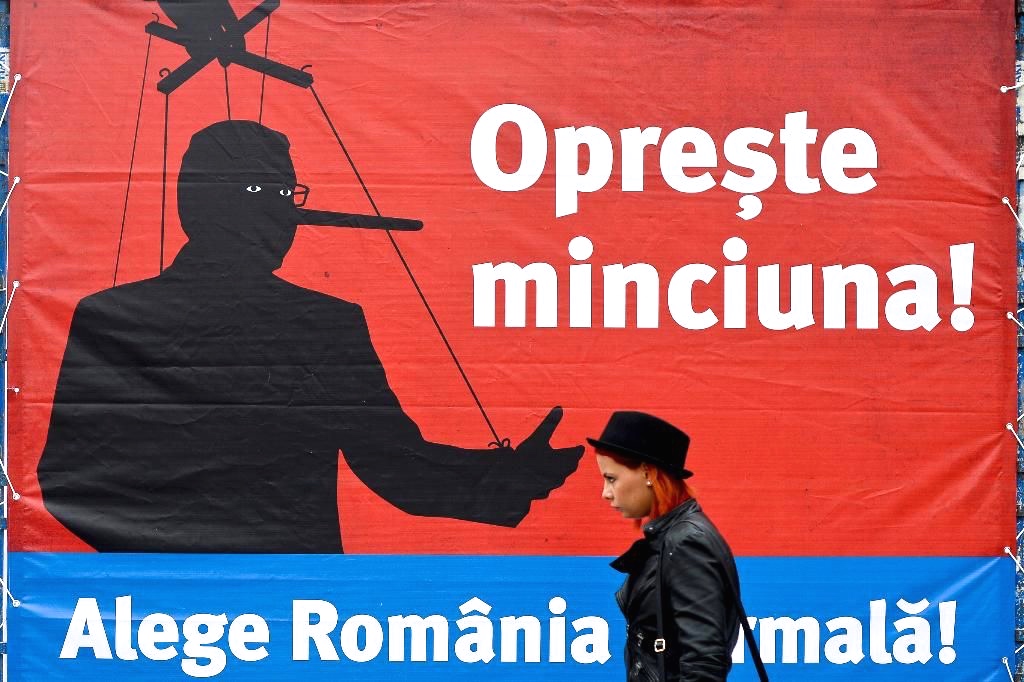
Students this month from several Romanian universities have occupied amphitheaters, sleeping in overnight, threatening with a hunger strike and boycotting midterm exams. Fed up with government passivity for the past eight years, and with the inefficiency of an Education, Research and Innovations Ministry that always promises and never delivers, the students are demanding 6% of the gross domestic product be allotted to education.
In Timișoara, the students occupied a bus used to transport them from one school to another – only this time they used it to talk other students into joining the protest gig, voicing their hopes, beliefs and anger along the way.
“I will stay in here for a weak, if necessary. I won’t sleep at home, that’s for certain,” declared one student, Razvan Codreanu, after a two-night collective stint in the amphitheater.
Dani Holocan, vice president of the Romanian Student Organizations National Alliance (RSONA), agreed. “It doesn’t matter whether you sleep much less, whether on the floor or on a blanket, if you fight for your rights, for the students’ sake – it motivates you to go farther,” he said.
Bucharest, Suceava, Galati, and Cluj-Napoca students vowed to join the Timisoara protests. They are determined to go the distance, without a change of clothes, without showering, poised to stay put and order in some food, listen to guitar songs and strengthen their resolve.
Last Thursday evening, Education Minister Sorin Mihai Campeanu met with RSONA leaders to discuss the issues made public by the latest events. So far, no deal. Yet there’s hope looming ahead. This fall, all of Romania's university rectors face election and some would-be candidates have already voiced their support for students’ movement. Smart move.
Context of a Student Revolt
All this comes at a time when the country is in disarray, and no one knows whom to trust or where to turn; what was yesterday legal, feasible, customary, is becoming more and more illegal, unfathomable. The EU is pressing Romanian officials to escalate the war against corruption, while the U.S. envoy criticizes those measures as minimal.
The fact is the entire government administration and public services in Romania are sort of dazed and confused. People don’t seem to dare perform their duties for fear of reprisals, and the Romanian Parliament is weighing and debating future dire laws but keeps delaying the process of actually conceiving and delivering the needed adjustments to the expecting public.
So the students have had it. It took them a while.
In October 2008, the medical school students in Iași protested the faculty’s declared intentions of expelling over 800 students for being 15 credits short; they had asked for a prolonged exams session. In April 2009, RSONA protested against the Education, Research and Innovation Ministry's delayed approval of an announced 15% grant increase and rumored cutbacks of the transport facilities funds.
Later that year, on Oct. 13, 2009, about 1,800 of 2,000 foreign students at the Iuliu Haţieganu University of Medicine and Pharmacy in Cluj-Napoca declared a strike, protesting against the higher tuition fees instituted by the government and the university senate. Those 2,000 foreign students now have to pay 5,000 euros a year – an unprecedented sum. Some students can’t afford to shell out that kind of money, like the 900 young people coming from Tunisia.
On March 15, 2010, RSONA declared another strike, calling for heftier grants and more money allotted to workshops, and demanded to be consulted on the new Education Law currently in the works. They sent a letter to the Education Ministry asking for a meeting to discuss all the issues related to undergraduate, graduate and PhD students.
“The students represent 80% of the collegiate system and we figured the student federations should be consulted in regard to the articles about to be adopted in the new law,” said RSONA President Ion Poenaru. They also called for their other propositions to be considered, among which would be a 25% student occupancy in the faculty’s decision making commissions.
Their motion unanswered, on Feb. 28, 2011, RSONA organized and declared a Japanese style strike. This time the students wore armbands inscribed “Protestors” and “We want 25%”, then sent the ministry a parcel containing pickles, bacon, salami and canned zacuscă (vegetable hotchpotch) so that officials would understand what it means to survive solely on mom and dad’s mailed food packages.
Then, on Dec. 9, 2014, University of Bucharest students mailed an open letter to the faculty officials, complaining about the poor conditions of the classrooms in which they're supposed to study, “forced to wear three overcoats and gloves” while being exposed to health hazards due to mold, dampness and leaky roofs – all in all, rather medieval conditions.
On April 8, students from around the country once more declared a Japanese-style strike, all the above requests remaining still unresolved. RSONA issued a press communique stating that the student strike was a warning to Parliament and the Education Ministry, calling on them to implement the students' demands – by giving them a say in the rectors’ election along with 25% elector representation.
Until that happens, the occupation and student strikes continue.
3 WAYS TO SHOW YOUR SUPPORT
- Log in to post comments














